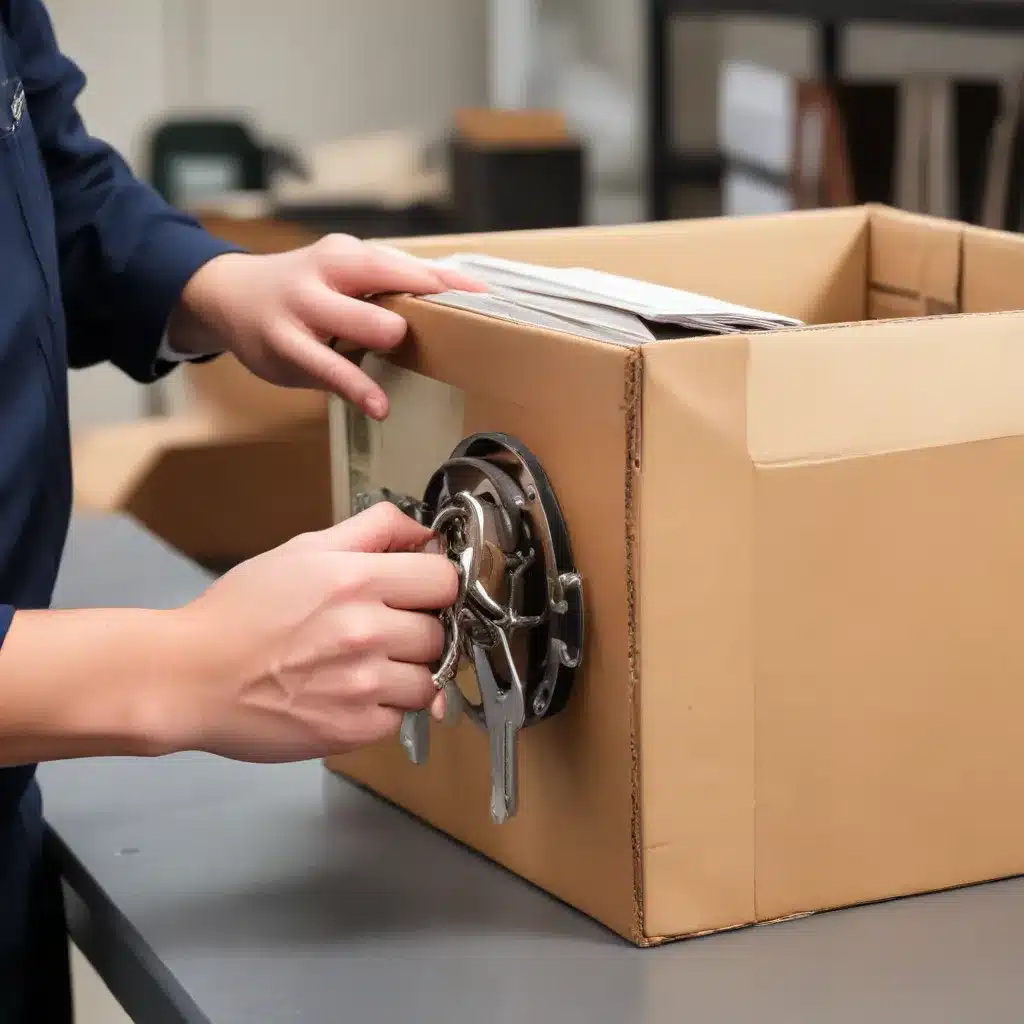
Safeguarding Your Valuables: Expert Safe Handling Guidance
In an increasingly complex world, the need to protect our most precious possessions has never been more crucial. As an experienced locksmith serving the Washington, D.C. metropolitan area, I’ve witnessed firsthand the importance of employing robust safeguarding strategies to secure a wide range of valuables, from personal belongings to financial assets and sentimental items.
Types of Valuables
When it comes to safeguarding, it’s essential to consider the diverse nature of the items we hold dear. Personal belongings, such as jewelry, artwork, and family heirlooms, often hold immense sentimental value that extends far beyond their monetary worth. Financial assets, including cash, important documents, and investment portfolios, require meticulous protection to safeguard against theft and fraud. Additionally, many individuals and businesses in the D.C. area possess valuable collections, ranging from rare coins to antique firearms, that necessitate specialized handling and storage solutions.
Safekeeping Strategies
Effective safeguarding begins with a comprehensive understanding of the available storage and security options. Physical storage solutions, such as home safes, deposit boxes, and safety deposit vaults, provide a tangible layer of protection against unauthorized access. Complementing these physical measures, digital security strategies, including encrypted data storage, cloud-based backups, and password management systems, offer an additional safeguard for electronic records and sensitive information.
Alongside these storage solutions, insurance coverage can play a crucial role in mitigating the financial impact of potential losses or damages. Homeowner’s or renter’s insurance policies often include provisions for the protection of valuables, while specialized fine art or collectibles insurance can provide tailored coverage for high-value items.
Expert Guidance
As a seasoned locksmith, I’ve had the privilege of assisting countless individuals and businesses in the D.C. area with their safeguarding needs. Through my extensive experience, I’ve developed a deep understanding of the most effective safe handling practices to ensure the security and preservation of valuable possessions.
Safe Handling Practices
Proper packaging and secure transportation are essential elements of safe handling. For physical items, utilizing sturdy containers, protective materials, and tamper-evident seals can help prevent damage and minimize the risk of theft during transit. When transporting valuables, it’s crucial to employ discreet and secure methods, such as armored vehicle services or private courier arrangements, to avoid drawing unwanted attention.
Controlling access to valuable items is another critical aspect of safe handling. Implementing robust access control protocols, such as biometric authentication, key management systems, and visitor screening procedures, can effectively restrict unauthorized entry and safeguard against internal threats.
Risk Mitigation Techniques
Theft prevention is a primary concern when safeguarding valuables. Incorporating advanced security measures, such as surveillance systems, alarm systems, and integrated access control, can significantly deter and detect criminal activity. Additionally, proactive environmental protection strategies, including climate-controlled storage environments and fire suppression systems, can safeguard against the risks posed by natural disasters and environmental hazards.
Developing comprehensive emergency preparedness plans is another crucial aspect of risk mitigation. These plans should outline clear protocols for responding to various crisis scenarios, including natural disasters, power outages, and security breaches. By regularly reviewing and updating these plans, individuals and businesses can ensure their ability to swiftly and effectively protect their valuable assets in the face of unexpected events.
Storage Solutions
When it comes to securing valuables, the selection of appropriate storage solutions is paramount. Each option presents its own set of benefits and considerations, and the choice ultimately depends on the specific needs and requirements of the individual or business.
Physical Storage Options
Home safes offer a convenient and accessible solution for homeowners looking to safeguard their personal belongings and important documents. These safes are available in a range of sizes and security ratings, allowing users to select the option that best suits their needs. For larger or more valuable collections, deposit boxes and safety deposit vaults at local financial institutions provide an additional layer of security and climate-controlled environments to protect against environmental threats.
Digital Storage Considerations
In the digital age, the safeguarding of electronic data and records has become increasingly crucial. Encrypted data storage, such as password-protected external hard drives or cloud-based backup services, can help protect sensitive information from unauthorized access and data breaches. Furthermore, the implementation of robust password management systems, including the use of password managers and multi-factor authentication, can significantly enhance the security of digital assets.
Security Measures
Comprehensive security measures are essential for the effective protection of valuables, whether in a residential or commercial setting. By leveraging advanced technologies and implementing robust access control protocols, individuals and businesses can significantly reduce the risk of theft, loss, or damage to their most prized possessions.
Surveillance Systems
Residential alarm systems, equipped with motion sensors, cameras, and remote monitoring capabilities, can provide homeowners with real-time alerts and the ability to quickly respond to potential security breaches. For commercial establishments, such as jewelry stores or art galleries, integrated security systems that combine surveillance cameras, access control, and alarm monitoring can offer an enhanced level of protection for high-value assets.
Access Control Protocols
Biometric authentication, such as fingerprint or facial recognition, can provide an effective deterrent against unauthorized entry, ensuring that only authorized individuals have access to valuable items. Robust key management systems, which incorporate secure storage, distribution, and tracking protocols, can help mitigate the risks associated with lost or stolen keys. Additionally, visitor screening procedures, including sign-in logs and visitor badges, can help businesses monitor and control access to their premises.
By employing a multi-layered approach to safeguarding valuables, leveraging both physical and digital security solutions, and collaborating with expert locksmiths and security professionals, individuals and businesses in the Washington, D.C. metropolitan area can safeguard their most prized possessions with confidence. For more information on advanced lock installations, emergency services, and key solutions, please visit Local Locksmith Washington DC.


